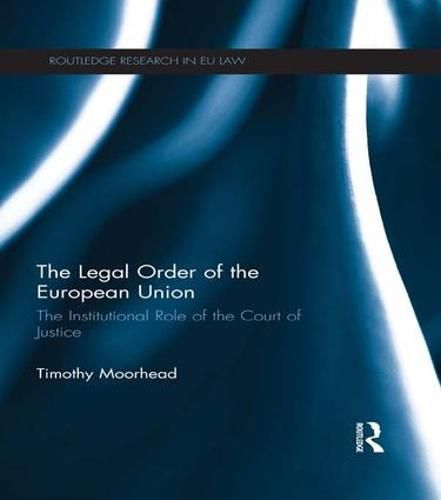Readings Newsletter
Become a Readings Member to make your shopping experience even easier.
Sign in or sign up for free!
You’re not far away from qualifying for FREE standard shipping within Australia
You’ve qualified for FREE standard shipping within Australia
The cart is loading…






The objective of European integration serves as an ideal of the legal order of the European Union and invites reconsideration of law’s conceptual features. This book critically assesses the legal order of the European Union, focusing on the operative aspects of the Union constitution with particular reference to the institutional practices of the Court of Justice in expressing the values underlying this constitution.
Drawing together positivist and non-positivist accounts within an institutional understanding of law, Timothy Moorhead breaks new ground in applying a range of analytic jurisprudential perspectives to the Union legal order, and in employing the theoretical resources provided by the Union to model a revised conceptual viewpoint concerning legal order generally. In offering this conceptual approach, Moorhead emphasises the flexibility inherent in law’s institutional character as the basis for a theoretical rationalisation of the Union legal order.
This book will be of great use and interest to scholars and students of European Union Law, Jurisprudence and European Constitutionalism.
$9.00 standard shipping within Australia
FREE standard shipping within Australia for orders over $100.00
Express & International shipping calculated at checkout
The objective of European integration serves as an ideal of the legal order of the European Union and invites reconsideration of law’s conceptual features. This book critically assesses the legal order of the European Union, focusing on the operative aspects of the Union constitution with particular reference to the institutional practices of the Court of Justice in expressing the values underlying this constitution.
Drawing together positivist and non-positivist accounts within an institutional understanding of law, Timothy Moorhead breaks new ground in applying a range of analytic jurisprudential perspectives to the Union legal order, and in employing the theoretical resources provided by the Union to model a revised conceptual viewpoint concerning legal order generally. In offering this conceptual approach, Moorhead emphasises the flexibility inherent in law’s institutional character as the basis for a theoretical rationalisation of the Union legal order.
This book will be of great use and interest to scholars and students of European Union Law, Jurisprudence and European Constitutionalism.